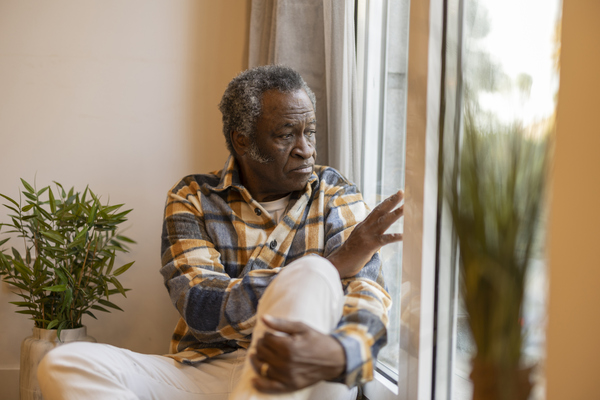By Pastor Andrews - Oct 10, 2023 #community #emotions #lonely #poverty
America’s Real Poverty

It’s no coincidence that the more secular society grows with its devotion to autonomy the more isolation and loneliness increase. An article in Men’s Health magazine by Christa Sgobba stated that “the rise in self-centeredness also predicted further jumps in loneliness, suggesting a cycle between the two: Increasing loneliness increases selfishness, and the more self-centered you are, the lonelier you tend to become.”
Surgeon General Vivek Murthy published an 82-page report on “Our Epidemic of Loneliness and Isolation”, which cites the decline of “social connections—especially among young people—as the reason for billions of dollars in increased health care costs." According to the country’s top doctor, loneliness has profound effects on mental health, increases the risk of heart disease, stroke and dementia. He recommends confronting the problem “the same way we prioritized other critical public health issues such as tobacco, obesity, and substance abuse.”
Of course, politicians are never far behind any crisis and already seek to employ expansive government programs to address the problem. Hillary Clinton teed off on that report with an article in the Atlantic entitled “The Weaponization of Loneliness” in which she fixed blame for the crisis on, you guessed it, “a vast right-wing conspiracy.” Senator Chris Murphy (D-Conn) has proposed a “National Strategy for Social Connection Act” to “combat loneliness and strengthen communities.” Ironically, funding for the project would flow through the CDC whose COVID restrictions imposed the greatest social disconnect on the country in living memory.
Even in the UK, the problem has generated the need for a minister of loneliness. Great Britain’s initiatives include “local Happy Cabs for transporting neighbors, sponsoring community gardens, Know Your Neighbor” projects and more. Sadly, despite these 2022 efforts the percentage of adults experiencing loneliness was unchanged.
As Christians, we recognize that the heart of the problem is the problem of the heart, and no government program or agency is capable of curing the sinful self-absorption that lies there. Treating symptoms never really gets to the root of the problem. The breakdown of traditional connections within families, churches, and communities find their ultimate source of healing in the gospel of Jesus Christ.
Treating symptoms never really gets to the root of the problem.
It’s tragic that so many young adults are leaving the church at a time when they most need it. It’s also tragic that many churches fail to create environments that foster deep connections. As Christian men, we can begin to counter this crisis by investing in others, inviting them into conversations that involve the whole person. At our church, we are intentional about helping men foster connections with each other. e.g., Our men's ministry is hosting a Grillmaster event this coming Saturday and has a monthly men's prayer breakfast. We hope that making these kinds of connections can help develop relationships that share whole life dimensions and not just surface issues like sports, weather, and work.
Mother Teresa died over a quarter century ago, but even then she recognized the growing vacuum within the soul of America saying, “the poverty in the West is a different kind of poverty -- it is not only a poverty of loneliness but also of spirituality. There's a hunger for love, as there is a hunger for God.” By the grace of God let us endeavor to fill that emptiness with the love of Jesus. It may feel uncomfortable and even create some awkward moments but reaching out to those around you could make a world of difference to that person who suffers in silence.